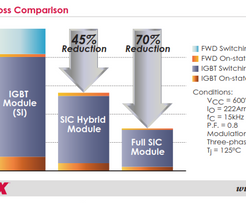TDK Lambda Spotlight - Why use a modular power supply with wide range output voltage adjustment?
- Mark Conley
- Aug 14, 2024
- 3 min read
Modular multiple output power supplies are usually factory assembled using pre-manufactured and pre-tested output modules, converters and subassemblies. The user only needs to determine their required output voltages and currents, signaling and overall power level. This type of product is primarily used as a centralized power supply to deliver multiple output voltages throughout a system.
One challenge that Engineers face is finding a power supply that can provide all the different voltages necessary for these complex systems. Often voltages outside of the nominal 3.3V, 5V, 12V, 15V, 24V and 48V are required for the optimum operation of sensors, additional circuit cards and motors. Output voltages may also need to be set higher to offset voltage drops in the cabling or series FETs for system redundancy. TDK-Lambda has been designing and manufacturing modular power supplies since 1979 and has fulfilled hundreds of requests for these “non-standard” voltages, often just a few volts above what is considered “nominal”.
If a modular power supply series has a narrow adjustment range or a small offering of modules, there is the possibility during the system development that a particular output voltage cannot be provided. This requires either the development of a modified standard part, a DC-DC converter fitted on a circuit board or an alternative power supply chosen to provide these required voltages.
TDK-Lambda’s Vega series addressed this challenge by having a significantly large choice of modules available, coupled with high technology and lean manufacturing processes for rapid delivery. The output modules use amorphous core (magnetic amplifiers) technology to provide a wide range adjustment.
The QM modular series was developed to address the requirement for low audible noise. Medical technology complexity has risen sharply in recent years, requiring more power and a need for forced air cooling. Audible noise can delay or complicate patient recovery and cause fatigue for the operator. A smaller number of modules were developed addressing the popular voltages and power levels while minimizing cost.

Figure 1: QM 550W-2000W module power supplies
TDK-Lambda’s most recent modular series, the MU4, is 41mm high (to fit inside 1U high enclosures), to meet industry requirements for lower profiles. The topology used directly addressed the issue of output voltage coverage by providing a seamless output voltage range from 3.3V to 104V (Figure 2).

Figure 2: MU4 adjustment ranges
1U high power supplies often generate higher levels of audible noise, as the fan has to rotate faster to move the same amount of air as a product that uses a larger diameter fan. The MU series uses an intelligent microcontroller algorithm (patent pending) to monitor the temperature of the primary converter and each output module, allowing the fan speed to be adjusted for optimum cooling, hence reducing audible noise.

Figure 3: MU4 600-800W 7-year warranty modular power supply
The voltage regulation specifications of the outputs are also important. Wide voltage variations can lead to errors, malfunctioning, or performance degradation in electrical devices. The MU series regulation is < 1% for 0-100% load changes and < 0.1% for 90-264Vac input line changes, to maintain stable output voltages to ensure consistent operation.
In summary, providing modular wide-range output voltage adjustment caters to the diverse requirements of electrical devices and ensures reliable operation across numerous applications. Other benefits of modular power supplies include lower system cost, a smaller system footprint, and the elimination of multiple power supplies and the additional noise and EMI generated that needs to be filtered.
To facilitate easy configuration of modular part numbers, TDK-Lambda has developed the on-line Quick Product Finder or contact us at sales@odonnell.com
Recent Posts
See AllThis is an excellent educational video by Joel Zaens on the values of buck/boost non-isolated DC-DC converters and the values they...














Comentários